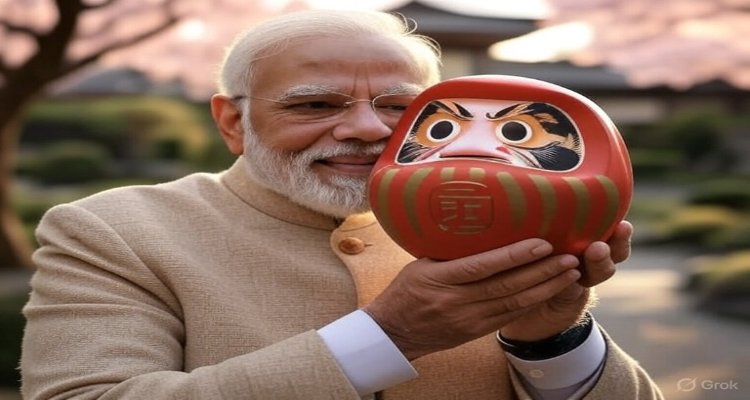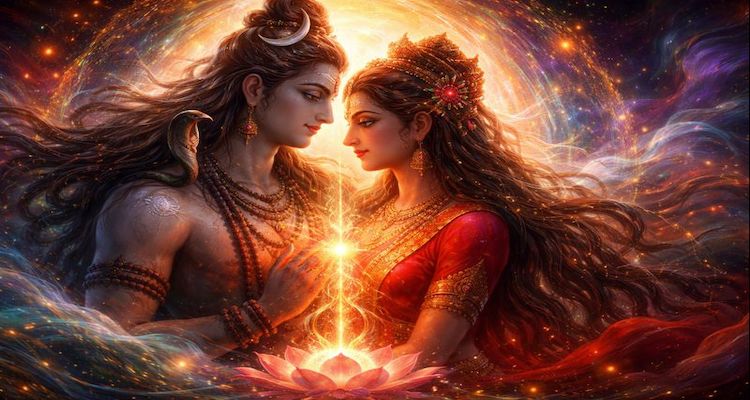PM Modi Presented with Traditional Daruma Doll in Japan: A Symbol of Luck, Resilience, and Shared Heritage

Prime Minister Modi received a traditional Daruma doll in Japan, symbolizing good luck and resilience, reaffirming deep cultural ties between India and Japan.
A Gift of Tradition and Symbolism
During his recent visit to Japan on August 29, Prime Minister Narendra Modi was presented with a traditional Daruma doll, a powerful cultural emblem in Japanese tradition that represents perseverance, resilience, and good fortune. The gesture, offered by Rev Seishi Hirose, chief priest of the Shorinzan Daruma-Ji temple in Takasaki, Gunma, went beyond ceremonial courtesy—it carried centuries of history and deep civilizational meaning.
The Daruma doll is not just a decorative artifact but a living cultural practice rooted in both spirituality and determination, making the gift especially significant in the context of India–Japan relations.
The Cultural Roots of the Daruma Doll
The Daruma doll is one of Japan’s most recognized traditional symbols. Usually painted in red and gold, it is hollow, round, and weighted at the bottom, allowing it to return upright when tilted—a reflection of the Japanese saying, “Nanakorobi yaoki” (fall down seven times, get up eight).
Traditionally, Daruma dolls are used for goal-setting and perseverance. When someone makes a wish or sets a personal goal, one of the doll’s blank eyes is painted in. The second eye is only filled once the goal has been achieved, making the doll a constant reminder of resilience and commitment.
Takasaki City in Gunma Prefecture is considered the birthplace of these dolls, and to this day, it remains Japan’s largest producer of Daruma.
The Indian Connection: Bodhidharma’s Legacy
What makes this gesture even more meaningful is the shared spiritual history behind the Daruma tradition. The doll traces its roots to Bodhidharma, an Indian monk from Kanchipuram in Tamil Nadu, who traveled to China and later influenced Japan over a thousand years ago.
In Japan, Bodhidharma is revered as Daruma Daishi, regarded as the founding figure of Zen Buddhism. His teachings on meditation, discipline, and resilience inspired the creation of the Daruma doll as a cultural and spiritual symbol.
Thus, when Prime Minister Modi received the Daruma, it was not just a gift from Japan but a symbolic return of India’s own spiritual heritage—a reminder of how civilizations connect across time and space.
Why This Gesture Matters
The presentation of the Daruma doll was not a routine diplomatic exchange. It underscored India and Japan’s enduring ties—rooted not only in modern-day strategic cooperation but also in centuries-old civilizational exchanges.
In recent years, India and Japan have strengthened their partnership across multiple sectors—defense, technology, trade, and infrastructure. Yet, the spiritual and cultural ties often provide the strongest foundation for people-to-people connection.
By honoring Prime Minister Modi with a Daruma doll, Japan highlighted the shared values of perseverance, discipline, and hope for the future—qualities both nations aspire to carry forward in their partnership.
Expert Insights and Reactions
Cultural historians emphasize the significance of the gesture. Dr. Hiroko Tanaka, a Japanese scholar of Buddhism, notes:
“The Daruma doll is not just a charm—it is a reminder of resilience and inner strength. Presenting this to Prime Minister Modi reflects how Japan views its ties with India not only as strategic but also as spiritual.”
Similarly, Indian cultural analysts underline the symbolic ‘homecoming’ of Bodhidharma’s influence. Prof. Ramesh Subramanian, an expert on Indo-Japanese cultural exchanges, explains:
“When Japan gifts a Daruma doll to an Indian leader, it is almost like Japan is reminding India of its forgotten son, Bodhidharma, whose teachings laid the groundwork for Zen Buddhism. It is a beautiful cultural reaffirmation.”
Implications for India–Japan Relations
The exchange of the Daruma doll reflects how soft power and cultural diplomacy play a crucial role in modern international relations. While both nations work on high-level agreements—from digital infrastructure to defense—gestures like these strengthen the emotional bridge between societies.
For India, the doll is a reminder of its spiritual exports—yoga, Buddhism, meditation—that continue to shape global cultures. For Japan, it is a chance to honor the Indian origins of a practice deeply embedded in its national identity.
Such symbolic acts pave the way for stronger people-to-people connections, complementing the geopolitical and economic alignment of the two democracies in the Indo-Pacific region.
Conclusion: A Symbol of Shared Destiny
Prime Minister Modi’s receipt of the Daruma doll in Japan was more than a diplomatic token—it was a reminder of resilience, shared history, and the enduring power of cultural exchange.
As India and Japan continue to forge their path as partners in the global arena, the Daruma doll stands as a symbol of perseverance, spiritual heritage, and good fortune—qualities that resonate not only between two nations but with humanity at large.
Disclaimer :This article is a journalistic interpretation based on publicly available information. It does not represent official statements from the Government of India or Japan.










